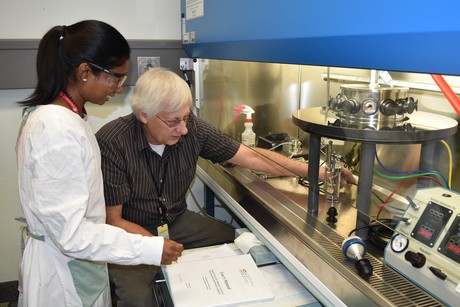An improved vaccine for World TB Day?

Today, 24 March, is World TB Day — a day designed to build public awareness that tuberculosis (TB) remains an epidemic in much of the world. But there may be some good news on the horizon, with two proteins from the tuberculosis bacterium showing promising results in investigations in mice for a new vaccine.
Scientists from the Centenary Institute and the University of Sydney, with colleagues at Universitas Gadjah Mada (UGM) in Yogyakarta, Indonesia, have found that the injected proteins can prime the immune system to induce protection against TB in mice. The team hopes the proteins could provide support for the BCG vaccine — a 90-year-old vaccine whose effectiveness varies geographically between 0 and 80%.
The team, which has received funding from the Australia-Indonesia Centre, has already established a laboratory and immunological techniques to test if the two proteins from the tuberculosis bacterium can be used as the basis for the vaccine. Testing began at the end of 2015.
“They look very promising; at least as effective as BCG,” said the co-leader of the study, Professor Warwick Britton, who is head of the Tuberculosis Research Program at the Centenary Institute and a professor at the University of Sydney.
“In fact, experiments not yet published suggest that the two can work to boost the impact of BCG.”
The researchers have already shown that these proteins triggered the immune systems of a small number of patients in Sydney. The team now has ethics approval to test TB patients in Yogyakarta.
Damaged RNA, not DNA, revealed as main cause of acute sunburn
Sunburn has traditionally been attributed to UV-induced DNA damage, but it turns out that this is...
Multi-ethnic studies identify new genes for depression
Two international studies have revealed hundreds of previously unknown genetic links to...
Oxygen deprivation may contribute to male infertility
Medical conditions that deprive the testes of oxygen, such as sleep apnoea, may be contributing...



